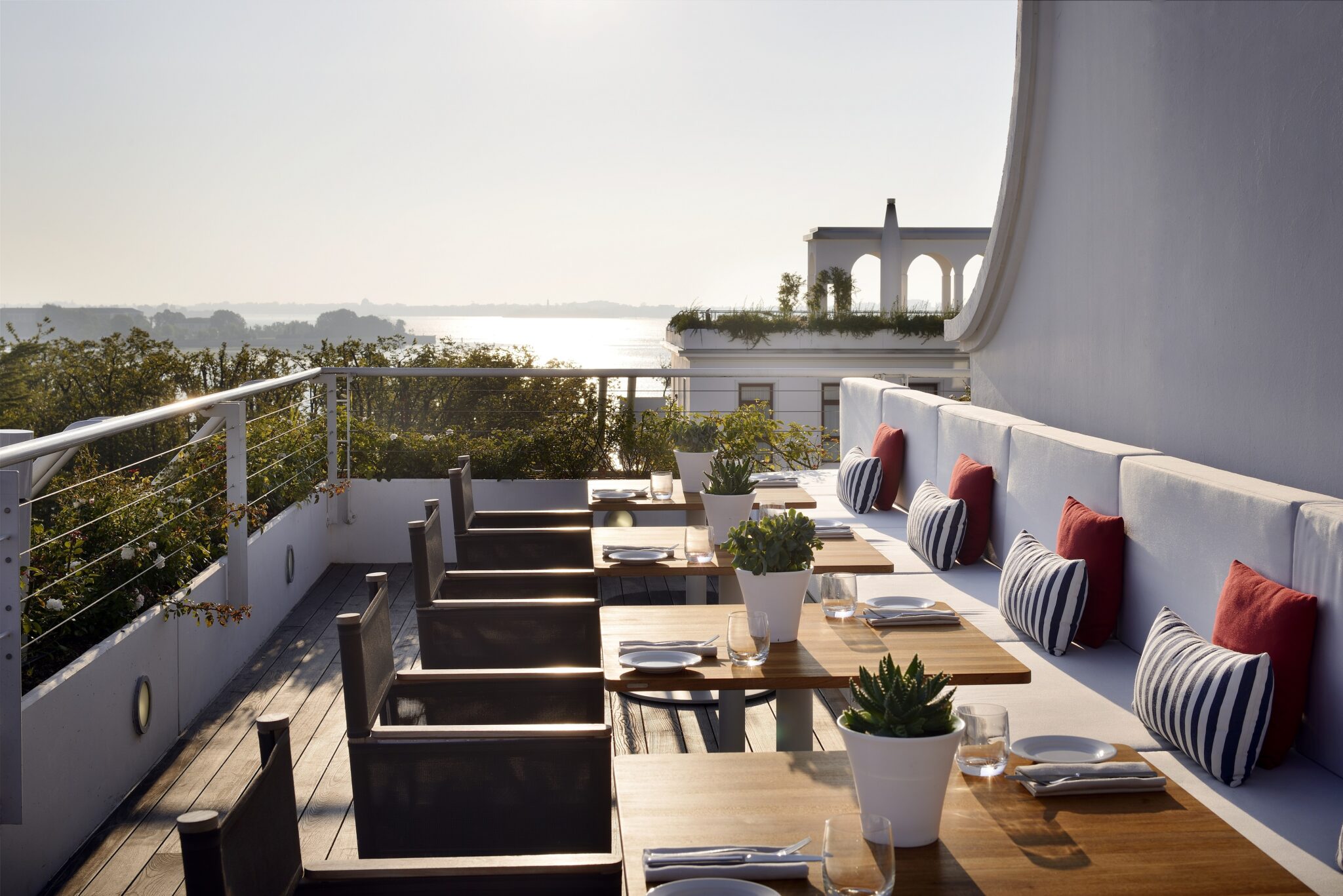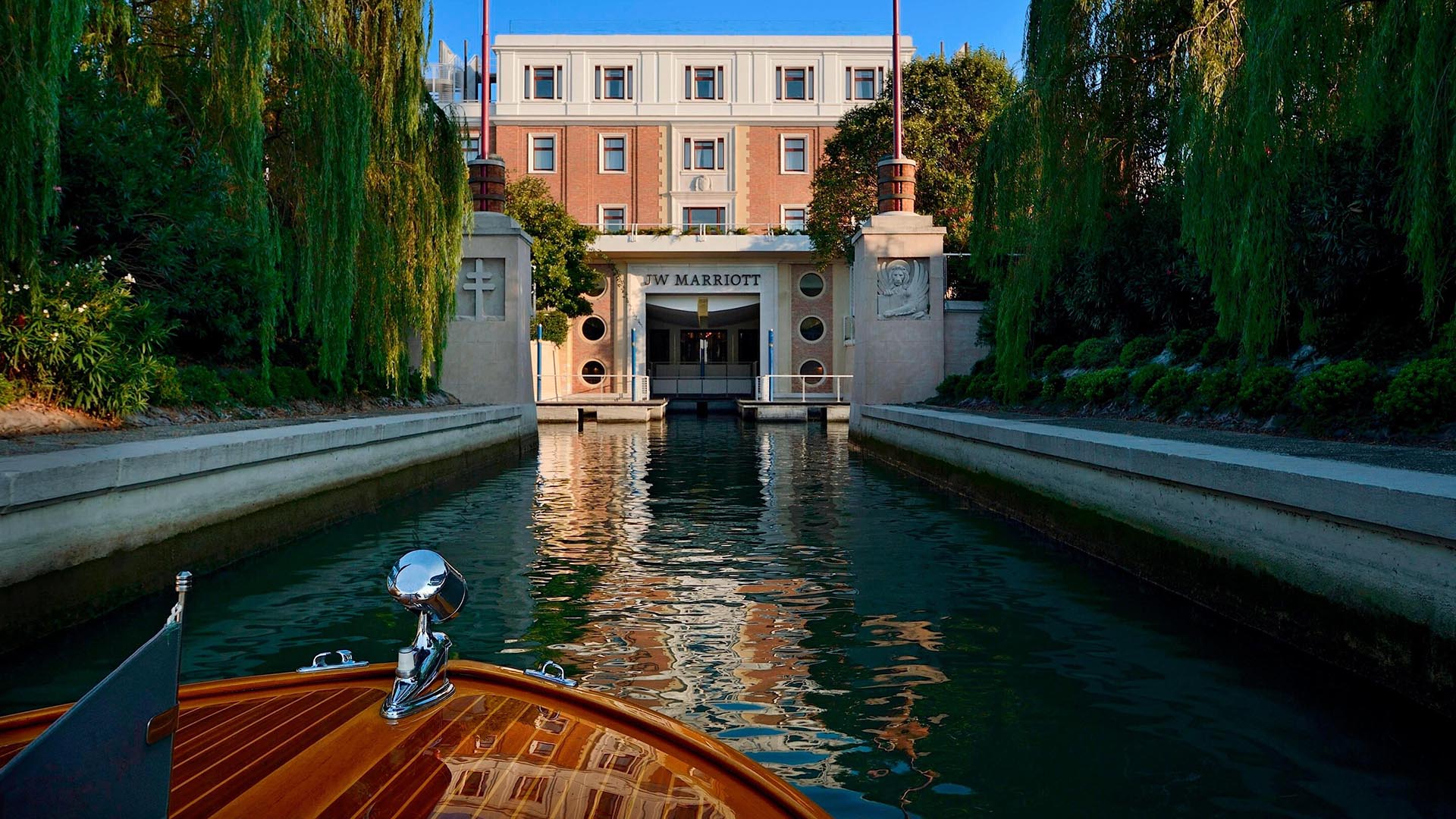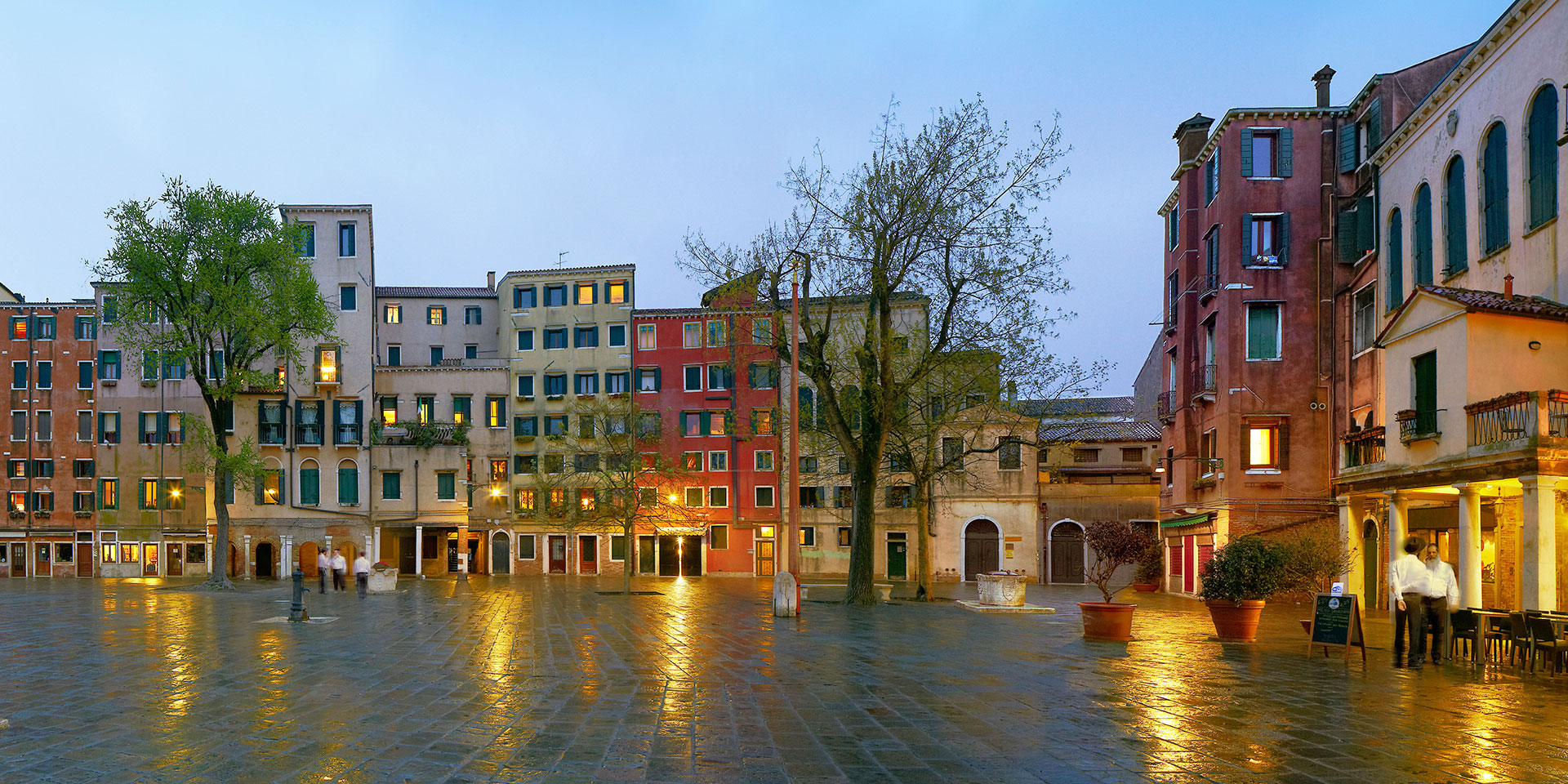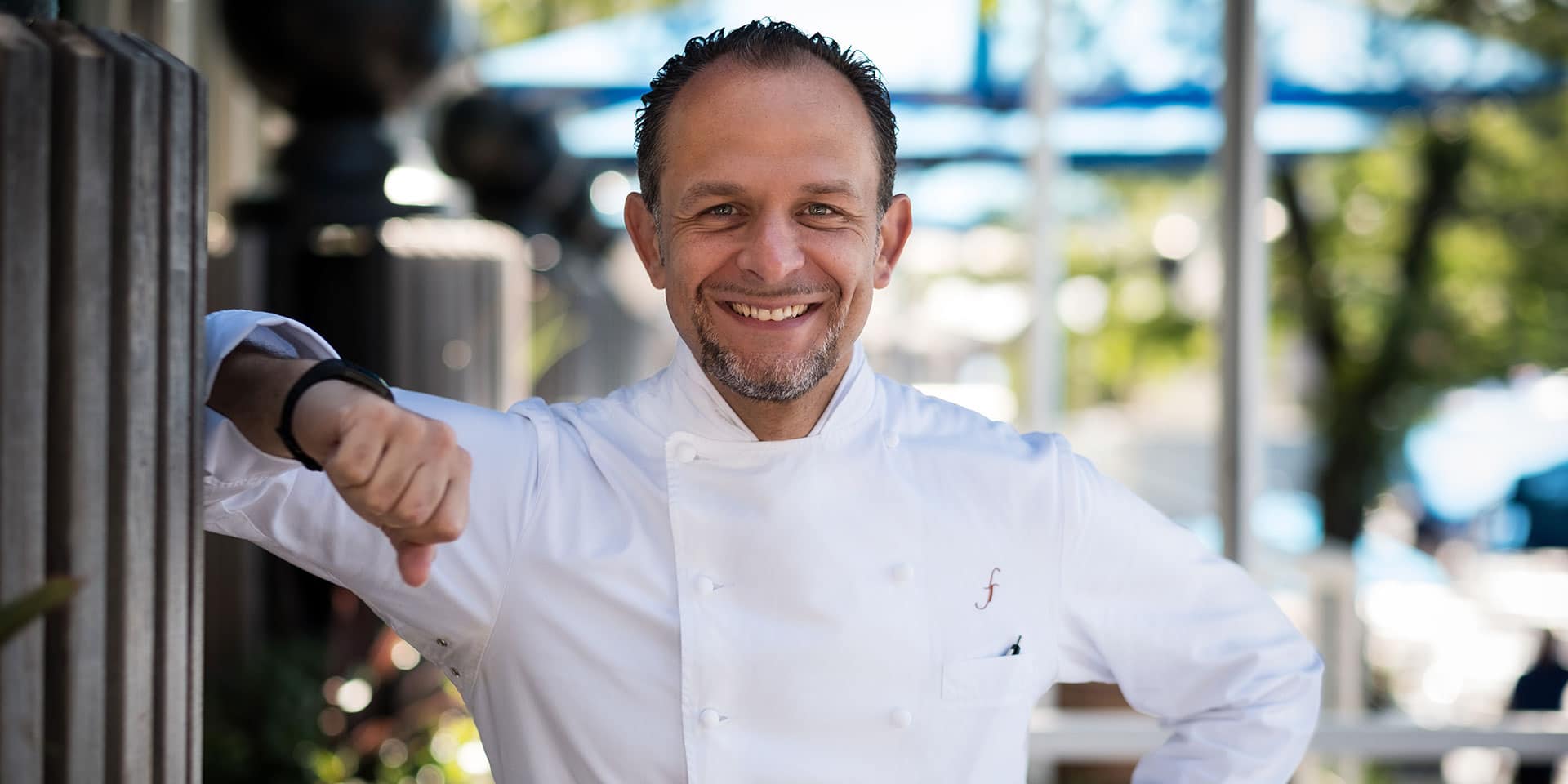
Chef Fabio Trabocchi wows DC – and Venice, Italy – with his culinary talents. (Photo: Courtesy of Fabio Trabocchi Restaurants)
Chefs You Should KnowChef Fabio Trabocchi on Italian Cooking, Perfect Gnocchi and Venice’s Artisan Flair
By Robin BennefieldChef and Restaurateur Fabio Trabocchi’s love of food came from his father and from being raised in an idyllic Italian coastal town where he was introduced to both the fruits of the land and the Adriatic Sea.
“I was the son of a former farmer, and for us, the quality of product coming from farmers was always a big thing in our diet, in our family meals, in our feasts on Sundays or long, long lunches, as you can imagine an Italian family would do,” says Trabocchi, whose early appreciation for food would lead him to become a James Beard Award–winning chef and the owner of a Michelin-starred Italian restaurant, Fiola, in Washington, D.C.
Trabocchi’s highly regarded D.C. restaurant earned a Michelin star for his stylish showcase of high-quality ingredients and the Italian traditions he knows so well, as seen in decadent dishes likely to feature foie gras or black truffle. It’s the crown jewel in a growing collection of restaurants, all of which highlight the same hyper attentiveness to fresh, seasonal ingredients.
Most recently, Trabocchi opened Fiola at Dopolavoro Venezia, nestled inside JW Marriott Venice Resort & Spa, on Venice’s private island, Isola delle Rose. The menu combines seasonal ingredients locally sourced from Venice’s Rialto Market as well as organic vegetables from the resort’s kitchen gardens and its homegrown olive oil.
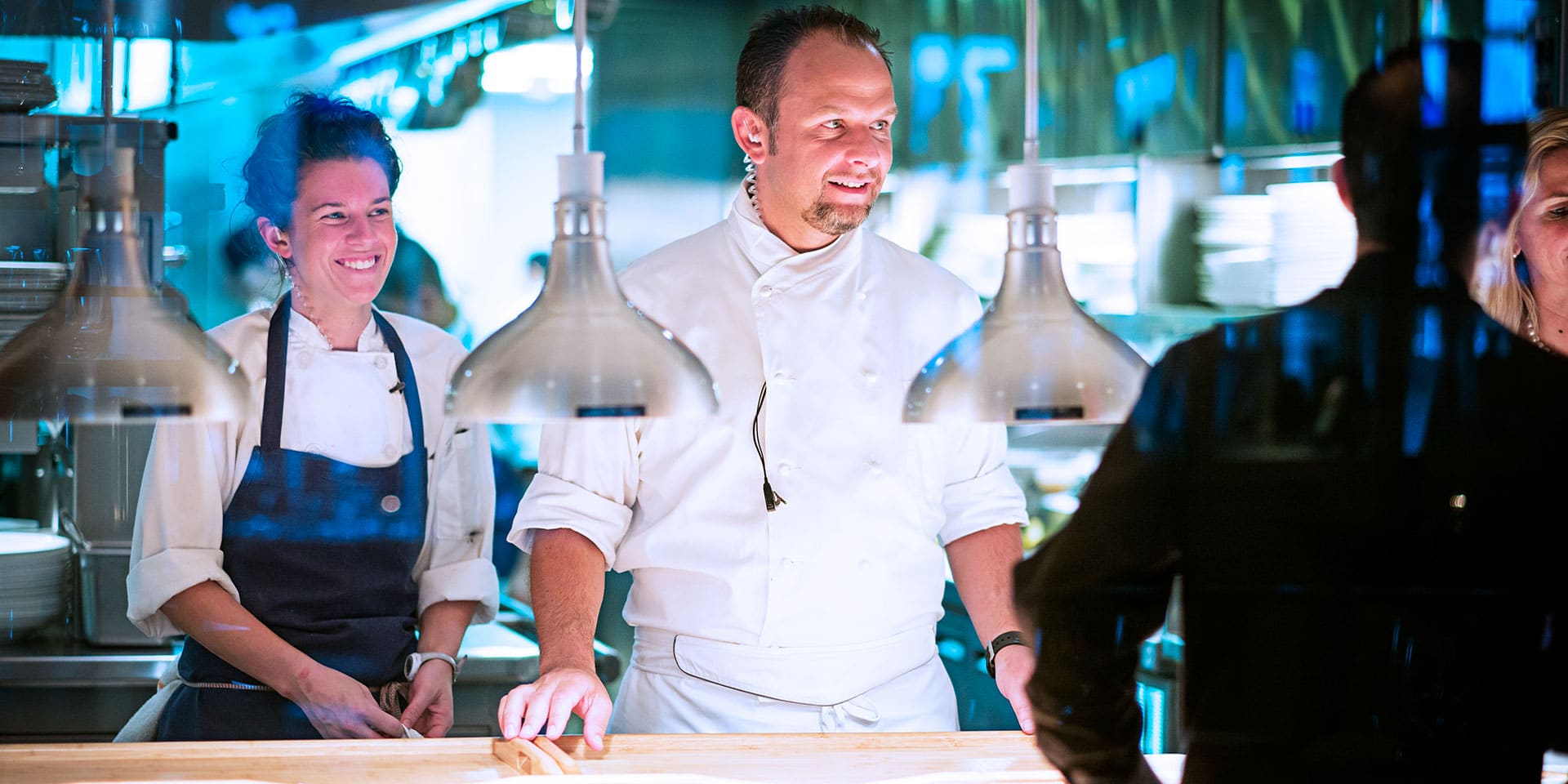
In the fall, Trabocchi will be a featured chef at Gather, A JW Epicurean & Mindful Experience, hosted at the JW Marriott Venice Resort & Spa from September 26-29, 2019.
Marriott Bonvoy Traveler sat down with Trabocchi at Fiola Mare, the third of his five restaurants, this one specializing in the Italian coastal cuisine he grew up eating, transplanted to the Georgetown Waterfront, where we chatted about all the delicacies and intricacies of Venetian culture and cuisine.
[Note: This interview has been edited for clarity and brevity.]
How did growing up in Italy on the Adriatic Coast influence the chef that you are today?
So, seafood is very important, as much as the inland product. In the early stage of my life, I learned how to get the right tomato ripe, get the basil when it’s best to get it, getting the strawberries when it’s early spring … peaches in the summer and chestnuts in the winters and everything that goes along with [the seasons], which is really the lifestyle of Italians …
Eventually it became my profession, and I was thrown into it. [For] my father, you know, eating habits were very, very important to him, and he loved cooking, and he loved to select ingredients carefully and so, indirectly, his education became eventually my profession.
What I love about Italian cooking is that it can always be defined by the quality of its product.
What dish did you learn to master early on?
Well, you know, it’s more of a craft and a skill than an actual dish … but my dad was in love with making gnocchi. As you can imagine an Italian family could be. So mastering gnocchi, for me, was very important, and eventually I did.
We were looking for the right balance of lightness yet firm, just enough that it holds any heat and temperature, and mastering that technique for me was very, very important. Eventually it became a staple in all of our restaurants today. But it started really at home.
Do you have an early favorite travel memory that you shared with your father or family?
In my teens, we were driving up the Adriatic coast and taking basically a U-turn into the former Yugoslavia then. So, we are past Venice on the other side. And doing that by car, you really are doing a drive on the coastline of all the Adriatic Sea.
And stopping into small little grill restaurants by the water and having the most amazing grilled calamari — really, you can see the boat approaching the restaurant and dropping calamari almost alive. It was one of my most deep early memories of great food.
I remember having this in the very, very simple [places], you know, tables and chairs with very simple tabletops and so forth, and those are not meant to be real restaurants. They are places where you stop because you’re having a long drive, yet the food was absolutely amazing, and the very first taste of that, it’s what … I didn’t stop eating … . Certainly, the setting and the view helped a lot.
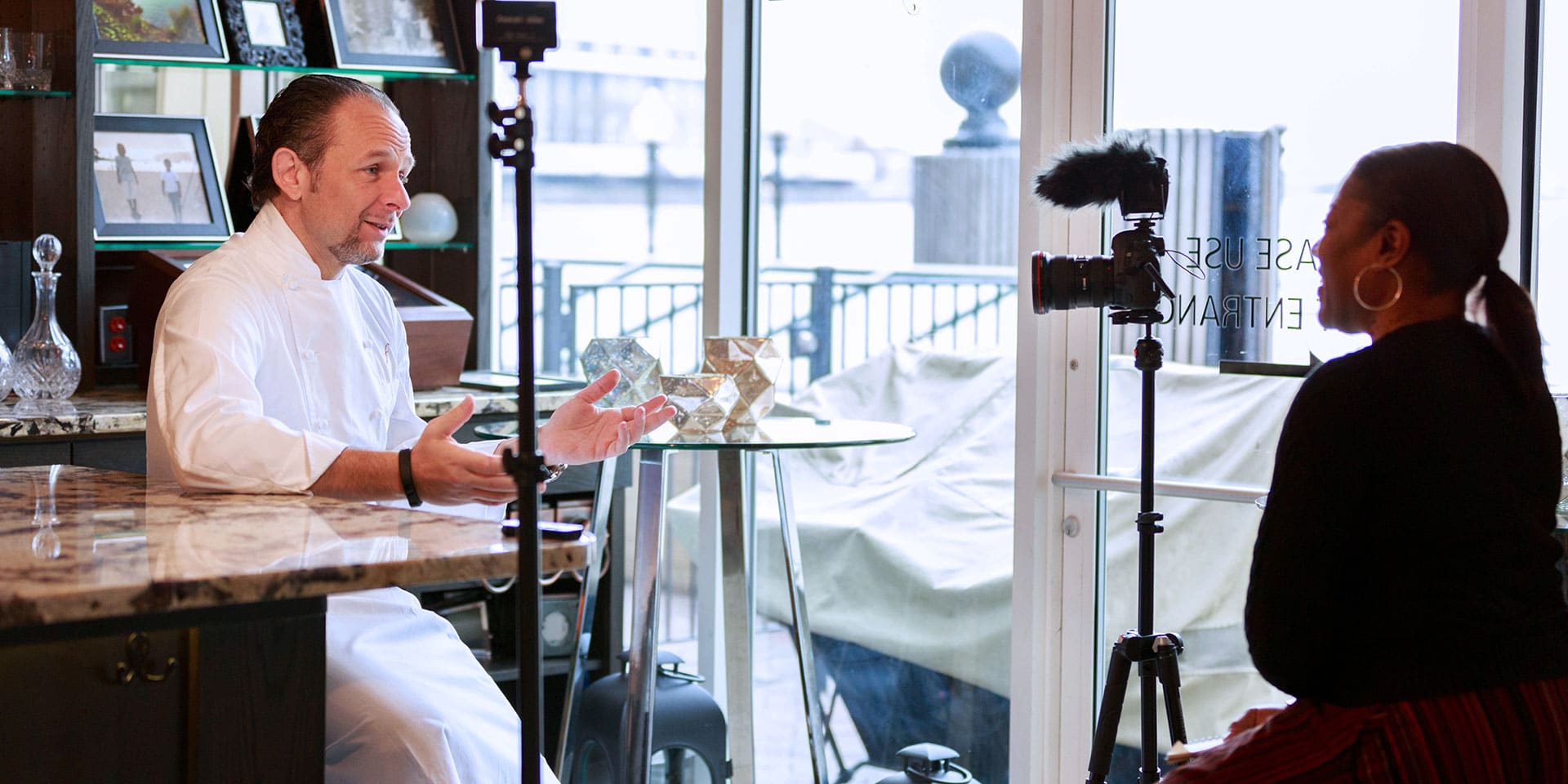
How do you define Italian cooking? Is it the pasta? What makes it distinct from any other style of cooking?
It is definitely pasta. Pasta is a big thing in every Italian household, and it’s a very big part of our culture. Every little town in Italy has [its own] shapes for pasta and different names because it comes from that town, even though it’s the same shape of the town two miles down the street or down the road.
But what is Italian cooking? Italian cooking is also the result of climate, of livestock, agriculture … . The cooking of the north is different than the cooking of the center or the south. It’s also the many, many other cultures that we’ve been dominated by over centuries. We have Arabic influence from the south. We have French, Spanish influences in the north.
It’s a very, very, very 360-degrees diet, OK? We have a coastal cuisine culture. We have an inland cuisine culture. We have hunting traditions and so forth. We have a love for truffles, OK, but also we have everything that we can possibly grow, from oranges to tomato to artichoke to eggplant, zucchini, squash blossoms and so forth.
What I love about Italian cooking is that it can always be defined by the quality of its product, and not much needs to be done to it to be excellent.
Tell me about the cuisine in Venice. What makes it different from other parts of Italy?
Venice was a port where there were a lot of the influences of product and spices from other parts of the world, including the Middle Eastern part of the world and so forth. Therefore, they got exposed to many other different cultures and food habits. It’s a very Italian cooking, don’t get me wrong, but because of that, they have had a big cultural exchange with many other [countries] for centuries.
What I love about the cooking from Venice is the straightforwardness, the love for seafood, which is also my personal love. It’s one of my favorite things that I like to cook, seafood in general. Sometimes I like not to cook it at all because it’s so good it can be also consumed raw, and there’s nothing wrong with that. It’s actually very nice.
Venice has a simple coastal cuisine … and inland cuisine, just like the cooking of my region. And those are really the things that I like the most.
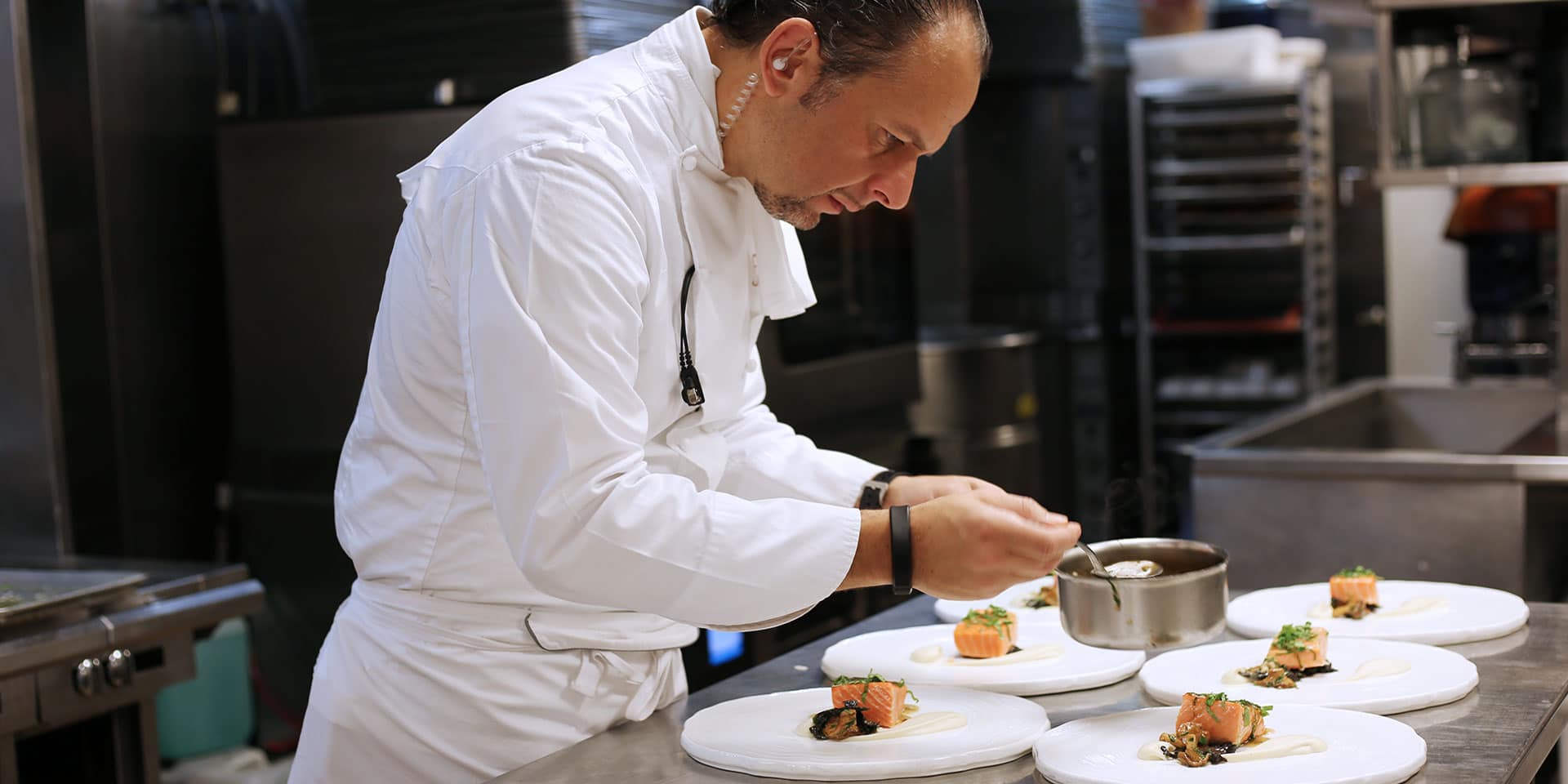
If you’re a first-timer in Venice, what are some things that you absolutely have to experience, from your perspective?
I remember my first time. I wish I could’ve double or tripled the stay to really appreciate the beauty of Venice. You know, Italy is Italy, and there’s a lot of beautiful [places in] Italy, but Venice is beautiful on its own. You get transported into something that is extremely unique: the setting, the vibe, the artisan flair.
It’s almost going into a little separate world that happens to be part of Italy, OK? But it’s Venice … Every corner of Venice is a small discovery, every street, every person, every little trattoria, every small restaurant, and everything that is also in a big, majestic, luxurious restaurant. And of course, all of the art of Venice. And the love for glass-making in Murano and so forth. There is no city like Venice, in my opinion, anywhere else in the world.





